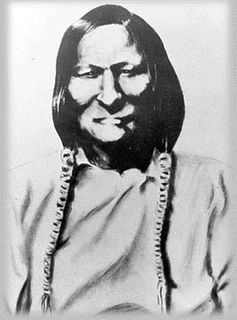A Quote by Thomas Keneally
But re-reading Voss also demonstrates again that although White wasn't 'a nice man', and indeed was—perhaps rightly—scathingly dismissive of my and other Australian writers' work and origins unless they were his friends, he was a genius, and Voss one of the finest works of the modernist era and of the past century.
Related Quotes
The Man of Genius may at the same time be, indeed is commonly, an Artist, but the two are not to be confounded. The Man of Genius,referred to mankind, is an originator, an inspired or demonic man, who produces a perfect work in obedience to laws yet unexplored. The artist is he who detects and applies the law from observation of the works of Genius, whether of man or nature. The Artisan is he who merely applies the rules which others have detected. There has been no man of pure Genius, as there has been none wholly destitute of Genius.
Modern novels have become part of the do-it-yourself business, and they come in a very small number of standard kits. (...) In this wilderness cries the voice of Patrick White, Australian extraordinary, who has quite other, more austere and indeed prophetic ambitions. (...) (H)is failures are certainly the equivalent, and perhaps the measure, of other men's success.
Although wrongs have been done to me, I live in hopes. I have not got two hearts....Now we are together again to make peace. My shame is as big as the earth, although I will do what my friends have advised me to do. I once thought that I was the only man that persevered to be the friend of the white man, but since they have come and cleaned out our lodges, horses and everything else, it is hard for me to believe the white men any more.
The book, the college, the school of art, the institution of any kind, stop with some past utterance of genius. . . . They look backward and not forward. But genius looks forward: the eyes of man are set in his forehead, not in his hindhead: man hopes: genius creates. Whatever talents may be, if the man create not, the pure efflux of the Deity is not his; - cinders and smoke there may be, but not yet flame.
The Honorable Elijah Muhammad says that the black man in America, for the past 400 years, has been like a boy in the white man's house, begging the white man for a job, for food, clothing and shelter. And then after the white man provides him with all of these things, he turns around and get - has the nerve to get angry at the white man when the white man tries to control his life.
Well, I'm half Australian, half English and I live in London. That is the only reason I came upon this story. My Australian mother, Meredith Hooper, was invited in late 2007 by some Australian friends to make up a token Australian audience in a tiny fringe theater play reading of an unproduced, unrehearsed play called 'The King's Speech.
Well, I'm half Australian, half English and I live in London. That is the only reason I came upon this story. My Australian mother, Meredith Hooper, was invited in late 2007 by some Australian friends to make up a token Australian audience in a tiny fringe theater play reading of an unproduced, unrehearsed play called 'The King's Speech.'
Man wants to see nature and evolution as separate from human activities. There is a natural world, and there is man. But man also belongs to the natural world. If he is a ferocious predator, that too is part of evolution. If cod and haddock and other species cannot survive because man kills them, something more adaptable will take their place. Nature, the ultimate pragmatist, doggedly searches for something that works. But as the cockroach demonstrates, what works best in nature does not always appeal to us.
I read continually and don't understand writers who say they don't read while working on a book. For a start, a book takes me about two years to write, so there's no way I am depriving myself of reading during that time. Another thing is that reading other writers is continually inspiring - reading great writers reminds you how hard you have to work.
Writers in the nineteenth century - people like George Eliot and Flaubert - were accustomed to addressing particular communities with which they shared not only linguistic meanings but also an experience and history. Those communities have progressively split in the twentieth century, and grown more heterogeneous, and writers emerging from minority communities have found themselves addressing audiences closer to their experience and history - a phenomenon derided by conservative white men as identity politics and multiculturalism in the arts.





































